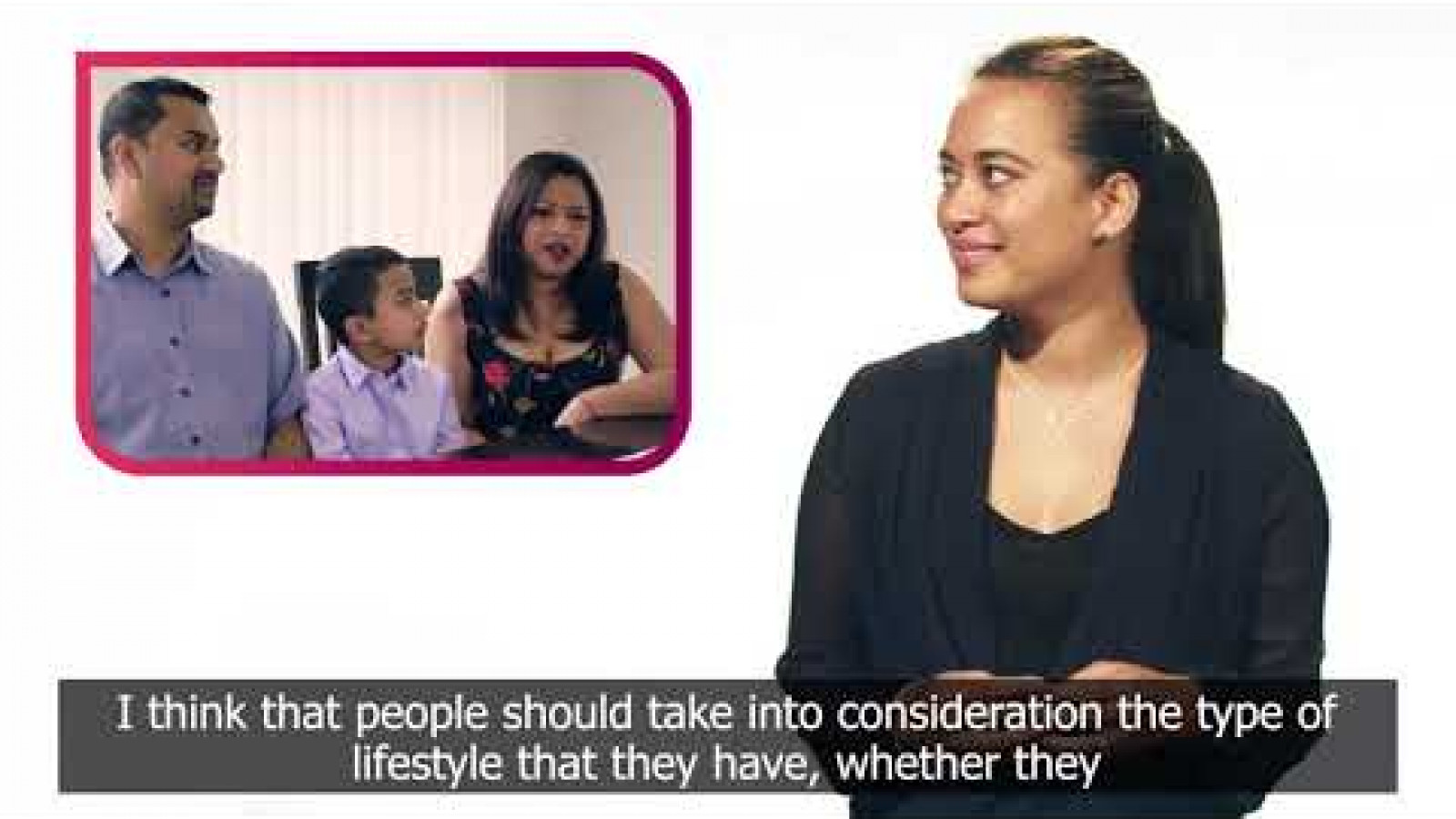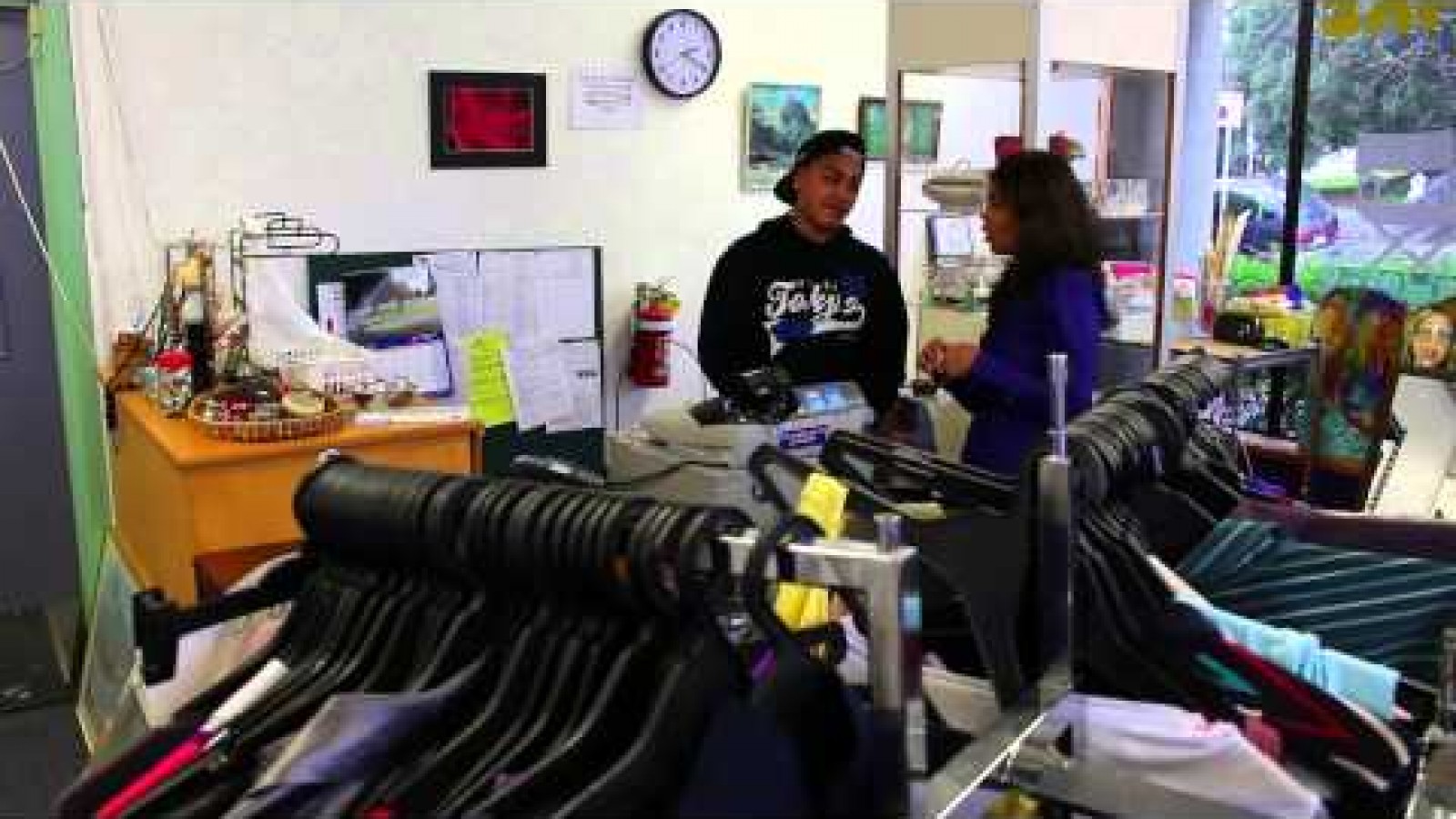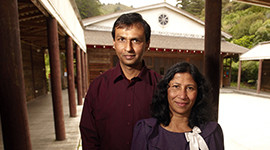Interested in coming to New Zealand?
Sign up to receive relevant job opportunities from New Zealand employers and practical advice on how to make your move to New Zealand a reality.
If it does, you may have to take short term work just to keep the cash coming in. Or you may have to take a different route to your ideal job.
This section has tips that will help make your job search as successful and speedy as possible. There are also ideas on what you can do if getting a job turns out to take longer, and be harder, than you expected.

If you're looking for a job in New Zealand here are some top tips on how to succeed
First, know your skills. Think about skills that employers in New Zealand are looking for in the workplace. Think about what New Zealand employers are specifically looking for. Also, think about what skills you have from your previous job that would be relevant for the New Zealand workplace.
Understand the New Zealand job market. You should know New Zealand businesses are smaller compared to many other countries. Often there are a smaller number of employees and teams of people. New Zealand employers put more emphasis on the skills and knowledge you bring with you rather than the qualifications you have.
The New Zealand culture and workplace can be quite informal, people like to be friendly and to get to know each other. Everyone can contribute ideas and feedback.
Sandra Lyall: At ANZ, some of the key skills that we're really looking for in our candidates is that adaptability, curiosity and also the ability to work across the organisation and collaboratively in a team.
Rakesh Nauhria: The three most important skill sets that are;
a. being able to collaborate with others
b. being service orientated or customer focused, then
c. critical thinking.
Juston Ensor: Aaving great communication skills, being a team player and being a problem solver and a thinker.
Shailan Patel: Three key skills that I probably look for when interviewing a candidate; first of all is passion. Communication - being able to articulate again what you've achieved in your time and lastly would be collaboration. It's about being able to work with other people, different types of people
different generations, different backgrounds, different experience and so how do you handle that challenge and work with others is going to be very important movign forward.
Know the lifestyle you want. Before you start applying for jobs in New Zealand, it's important to think about the sort of lifestyle you want, where do you want to live? How much do you want to commute?
Cindy: I think that people should take into consideration the type of lifestyle that they have, whether they enjoy living within a city that's like a bustling city, or whether they prefer being in a more quieter suburb.
Networking, networking is the most effective way to get a job in New Zealand. Not all jobs are advertised so it's important to make contacts in your industry and within New Zealand social groups. More than half of the available jobs in New Zealand are filled by employers using the networks of people they already know.
Go online. When applying for a job you can apply with popular job sites like Seek and Trade Me.
You should also research company websites and connect with recruiters in your industry. Showing initiative always impresses New Zealand employers, so don't be afraid to call, email or reach out on LinkedIn to a company you're interested in working for.
Even if they don't have a job that is suitable, people you talk to may offer you the name of colleagues in another company or give you advice about other skills you have that may be useful.
Create a New Zealand style CV. Make sure you adjust your approach to suit New Zealand employers. You should create a New Zealand style CV or resume. Check out New Zealand websites for templates and examples.
Typically, New Zealand employers prefer a one page cover letter and two to three page CV. Adjust your CV to match each job description, so make sure you focus on the skills you can offer an employer, not just on the previous jobs you have had.
Don't hesitate to reach out to people in your community to better understand the kiwi style of communication and approach. They may also know people who could put you in touch with employers.
Ask for help. New Zealanders are a friendly helpful bunch, so don't be afraid to ask for help. Do not be shy, be confident and talk to people you know and let them know you're available for work and looking for an opportunity. There are a number of support services available in New Zealand that can help.
So, to kick off your job search, remember to:
Know your skills and how you can sell them to New Zealand employers.
Know the lifestyle you want to create in New Zealand.
Be proactive - do your research, network and reach out to people in your industry.
Adjust your approach - make sure to create a New Zealand style CV that suits the employer you are applying with
- and ask for help. Don't be afraid to reach out and talk to people in your industry.
So, all that's left is to get started. Good luck.
Looking for work can be a lonely business. So, you should seek out support as soon as you can. Having people you can share experiences with will make things easier - and of course, it means you’ll have people to celebrate your eventual success with.
Most cities have local programmes to help newcomers like you find work in New Zealand.

Showing initiative always impresses Kiwi employers. Plus, coming from overseas you’ll have a more interesting story to tell.
There are various other employment support programmes available around the country. They include ‘Newcomer’ matching programmes, job mentor programmes, job clubs and training in the skills needed for the New Zealand workplace.
A good website to visit is careers.govt.nz. They have tips and templates for CVs and cover letters, other practical self-help resources, and career advisers you can chat with online or over the phone.
Another option is finding a job mentor of your own. Try to find someone who works in your industry who is prepared to give you occasional advice about how things work in New Zealand, where to look and who to talk to. It doesn’t have to be a formal arrangement or involve anything more than the occasional phone call or meeting for coffee.
There are also a number of professional career advisers and coaches who can give you ideas and objective feedback about your applications and interview techniques. Just search online.
You may have great skills that are in demand, but being new here, you’ll still be at a disadvantage in some aspects compared to Kiwis going for the same job. Working through the items on this checklist will help you identify and overcome some of your weak spots.
Remember, after every job interview, always ask for feedback on how you performed. It’ll give you important clues about what to do, or not to do, next time.
Showing an employer that you are familiar with how Kiwi workplaces operate will give them confidence that you will be comfortable in your new role.
Get some background information from our Newcomers Guide. Then, try using it in some practice interviews with a Kiwi playing the role of employer and asking how you’d react in certain situations.
If you don’t have any experience in a role in New Zealand, try some volunteering while you are job hunting.
The impact Māori culture may have on your day-to-day life depends on where you live and what work you do. Some jobs require an understanding of Māori protocols. Check out our Māori culture page for some links.
Guide to New Zealand workplaces
You’ll have looked into qualifications before you started applying for jobs, but you should check with employers about which qualifications they believe are most useful for their particular role and organisation.
Be prepared in interviews to describe how your qualification compares with local ones. Remember your interviewer may have a similar qualification, so be tactful if you think your version is better!
Check if there is a professional group you can join to show that you understand how your industry or profession operates in New Zealand.
Qualifications and occupational registration
To work in New Zealand, you’ll need to be able to understand, speak and write English well. How well will depend on your industry or occupation. The more skilled your work the better your English will need to be.
Even if English is your first language you may find understanding Kiwis is not always easy.
So, check out our Learning English page in Live in New Zealand for ideas on improving your language skills, tuning your ears into our accent and understanding the slang and unusual expressions we use.
If settling in and job hunting is taking a while, you may have some gaps in your CV. It will help if you can show you’ve been using the time to improve your knowledge and understanding of Kiwi culture, local workplace customs, or Kiwi English.
Migrant stories

Volunteering in Wellington gave Shikha work experience and helped her secure a new job.
Doing voluntary work is a very good way to meet people, build up work experience in New Zealand and fill in any awkward gaps in your CV. Volunteering can also lead to references, which can be a real asset in your job search.
By volunteering, you can keep up your skills while you search for work. You may also learn new skills in an area you’d like to move into.
There are lots of opportunities for volunteer work in New Zealand. Many community groups and not-for-profit organisations need qualified people for specific work which they’d otherwise have to spend hard-won funding on.
Ways to find volunteering opportunities include checking the community boards at your local hall, community centre, library or shopping centre. Check your local volunteer centre on Volunteering New Zealand.
If you hold a student, visitor, or work visa you can volunteer, providing you will not receive any gain or reward for the activity you volunteer for, i.e. any benefit that can be valued in terms of money like lodging, food, transport, etc.
Finding volunteer roles | Volunteering New Zealand
Can I do unpaid work while working in New Zealand? | Immigration New Zealand

Hi, I'm Shambhavi Mandreker. I am from India and a city called Mumbai.
I came here to New Zealand in December 2010, that's because I got married to Emit Kudo.
I was homesick initially because I was just telling Ahmet, "I want to go back home" and he's like,
“No - you know, give it some time you've just arrived to this country, it's a beautiful country. Just give it some time…”
Ahmet told me that you should start volunteering, and that's how you would get to know people - you would make contacts, the more you enter out of the house to socialise, you'll make new friends.
And I was at home and I was like let me just go through all the websites and see what's the best for me, and he gave me a couple of names like Citizens Advice Bureaux, Volunteer Wellington, Volunteering New Zealand ...
So I happen to contact Volunteer Wellington, and they're like, "Why don't you come to our office?" - and it was really sweet of them they were very warm and welcoming.
When I started volunteering with Volunteer Wellington, that's how I exactly know how New Zealand market functions, how it works, what the work culture is, what do people expect of you, what are your expectations from the employer, what are your rights as an employee, what are your rights as an employer.
That's how I made contacts - and then I was offered a job, and that's how my part-time employment became - and then we moved to Auckland.
And - also Ahmet got a job here he got promoted. That was a main reason to move to Auckland.
When we moved to Auckland I moved to Auckland with a two month old baby, and that was a big challenge because we didn't have friends, we didn't know anybody in Auckland.
So that was difficult, you know - it was another challenge to find a job, find a paid employment, because you don't have that much of time to go on the internet, apply for jobs, go for interviews, and especially when you don't have help - you know and your husband is working.
So ... I gave it some time and it took me six months to find a new job, and I started working in to HR for a construction company. I worked there for nine months, and then the opportunity with the Salvation Army claimed and I started working at the Salvation Army after nine months.
Oh when I first started working here in New Zealand what surprised me most was the morning teas and the tea breaks. We don't have that culture back home. We don't have standard hours of work like the way we have you're like, if you start work at eight you finish work at either four or five … if Ahmet and I were working back home we would hardly get time to spend with each other.
That's what my friends are facing back home. They are - they're frustrated because they don't have enough time to spend with their partners or their families. I personally like the work culture here in New Zealand.
I think because that just helps you balance your family life as well, and I think work-life balance is important.
The worst day that I recall I had ever since I've come to New Zealand is the one when I had my baby with me. He's crying and I had no help, and that's
when I missed my family the most. I was homesick ... Ahmet was at work - he couldn't take a day off, so, and I was a young mother, and I'm like I don't know what to do for being a first-time mother - I have no help.
So I literally cried, and I would think, "Have I made the wrong choice? Have I made the wrong decision of, you know, settling here in New Zealand?
But now when I sit back and think and when I see my two and a half year old going happily to the daycare and looking forward to go to his, daycare - I've made the right decision.
Returning to work after a break can be daunting, especially in a new country.
Getting prepared and knowing the options available can help you feel more confident in making the transition. Careers.govt.nz has some useful tips and advice on where to start.
If you have children, you can find information about the early childhood education options on the Ministry of Education’s Parent's and Whānau website.
You can also talk to your employer about the options for working flexible hours if you need to fit work around caring for your family.
Returning to work after a gap | careers.govt.nz
Early learning | education.govt.nz
You need to be flexible in your search for a job you would really like.
To start with, look beyond your qualifications. Dig deeper and think hard about what skills and work experience you have. These are ‘transferable’ skills that can open up jobs you’re good at and enjoy, but that may be in slightly different fields than you would have originally considered.
Many of the skills employers look for in a candidate are transferable skills, or skills that can be used in a variety of jobs.
Another part of being flexible is not just focusing on particular job titles. Broaden your search to look for vacancies that need the transferable skills you have identified.
The careers.govt.nz jobs database lets you search for job descriptions that might include your transferable skills.
You may also want to consider further training. As well as broadening your skills, this will give you a New Zealand qualification.
If you already have relevant training and experience, you may be able to complete a qualification here more quickly than you expected. The process is called ‘Recognition of Prior Learning’ (RPL) and you can find out more about it from the careers.govt.nz website.
Another approach is portfolio working - earning income from a variety of sources. You might combine freelancing or self employment in your chosen field with a regular contract or temporary jobs doing different types of work.
Portfolio working is quite common in New Zealand, particularly in smaller centres.
Incidentally, starting or buying a business, or freelancing on your own account is easy in New Zealand. It is quite common for relationships formed this way to develop into full time employment opportunities.
For more information about starting or buying a business visit business.govt.nz
Figure out your skills | careers.govt.nz
Skills employers are looking for | careers.govt.nz
Job profiles | careers.govt.nz
Credit work or learning towards a qualification | careers.govt.nz
Starting a company | business.govt.nz
Migrant stories

Zavinee Senaratne, Sri Lanka
They gave me an appointment and after the director interviewed me, he agreed to take me on for a one month trial.
Many jobs in New Zealand - perhaps as many as 70-80% of them - are never advertised. So, as well as looking for advertised jobs you need to seek these jobs out and put yourself in situations that might lead to offers.
Meeting people and joining professional networks is the usual way to start. That can start conversations that can lead to an introduction… that can lead to a project…. that can lead to a position.
Networks and service clubs are other places you can make contacts with people who know about jobs that are available or coming up but are likely to be filled without being advertised. (They can also be good places to find Kiwi mentors in your field of work who can lend you some friendly advice from time to time.)
Industry and professional groups run frequent conferences and events: so do local councils and Chambers of Commerce. You should also consider community or cultural groups that have been set up specifically for people from your home country.
Check the local networks and community groups pages of our Regional section.
It can be a good idea to check whether the networks you have in your home country have contacts in New Zealand. You may be able to get some contacts before you leave home.
TIP: Networking events are not the time to hard sell your skills. Just tell people what you do and say you are looking for openings.
Home | Business and Professional Women New Zealand (BPWNZ)
Sign up to receive relevant job opportunities from New Zealand employers and practical advice on how to make your move to New Zealand a reality.